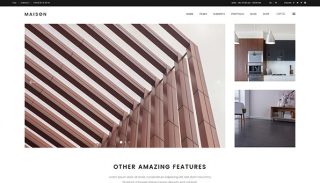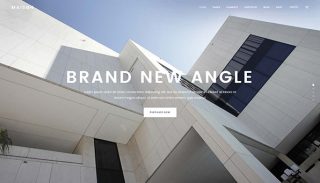Direct-Access Broker: What It Means, How It Works, Example
Content
In order to avail the benefits of direct market access, the traders pay a minimum deposit for each broker which is mentioned above in the table. Hence, the owner of direct market access simply needs to pay an execution fee to send the trade order to the market. As previously mentioned, pre-trade what is direct market access controls are essential to a broker-dealer’s compliance with its Rule 15c3-5 obligations.
Direct-Access Brokers vs. Other Brokers
They provide investors with a range of services, including investment and retirement planning, portfolio construction, tax advice, and research. As noted above, direct-access brokers are different from other types of brokers, including online and full-access brokers. Deal without a middleman and get better pricing, higher liquidity, faster execution and more control over trades. Another factor fueling the growth of DMA is https://www.xcritical.com/ the trend towards more modular, interoperable, component-based, Software-as-a-Service (SaaS) DMA platforms. This trend has broken down many barriers to entry, making DMA much more accessible, to a wider group of market participants, than it has been in the past. Both Smart Order Routing and Direct Market Access have their pros and cons, and traders need to carefully consider their individual needs before choosing one over the other.
What Fees Do Direct-Access Brokers Charge?
This section delves into the intricacies of DMA, discussing its significance, benefits, and challenges from a variety of perspectives. Direct market access allows retail investors to buy and sell financial instruments directly over the stock exchange by eliminating intermediaries such as brokerage firms. Here, they have direct access to the electronic order book, which contains the details of all the orders traders place.
Empowering Individual Investors through Direct Market Access[Original Blog]
Having said all this, using a full-service broker helps individuals who want someone to take the reins for them, especially if they don’t have time to stay on top of their investment and trading needs. The fee structure and commissions charged by these brokers can be much higher than online and direct-access brokers. These brokers are also popular with day traders because they offer other services like streaming quotes, interactive charts, and Level II Nasdaq quotes among others.
Benefits of direct market access in forex
The latest trend for online brokers is commission-free trading on stocks, exchange-traded funds (ETFs), and options. Most free platforms sell the order flow to market-makers and high-frequency trading (HFT) hedge funds. DMA trading enables traders to place buy and sell trades directly on the order books of an exchange or a liquidity provider. While brokerage firms can work on a market-making quote basis, it has become more common since the 1990s for brokerage platforms to use direct market access for completing the trade. With direct market access, the trade is executed at the final market transaction phase by the brokerage firm. When it comes to efficient order routing strategies for ECN traders, two popular methods that come to mind are Smart Order Routing (SOR) and Direct Market Access (DMA).
What markets can you trade with DMA?
Besides, it’s also common that the brokers act as a counterparty for retail traders. When the retail traders buy, the brokers act as a seller, and when traders sell, brokers act as their buyers, even when investors make use of leverage. Since trading orders are digitally executed, they travel at the speed of light from the vendor’s end to the stock exchange. This speed could be potentially improved with a closer distance between the vendor’s system and the stock exchange.
Example of a Direct-Access Broker
Direct-access brokers are contrasted with online and full-service brokers. In the fast-paced world of modern financial markets, traders and investors are constantly seeking new and efficient ways to gain an edge. One such avenue that has gained significant prominence is direct Market access, commonly known as DMA. DMA offers market participants a direct gateway to global exchanges, circumventing the traditional channels and intermediaries that have historically been part and parcel of trading.
Report on FINRA’s Examination and Risk Monitoring Program
These are companies that match buyers and sellers of shares in the market. The best-known of these companies are Bat Exchange, EDGX, AMEX, and ARB among others. As such, when using the popular retail trading brokers, you don’t have a say on where your orders are filled. In early 2021, during the Wall Street Bets craze, the contrast between DMA and retail trading became clear. As stocks like AMC Entertainment and GameStop skyrocketed, retail brokerage companies were accused of colluding with their market makers like Citadel Securities.
If exchanges as one large entity were to take such a risk, it would be systemic and put everyone participating in the markets at risk on an extremely volatile day (like in 2008). One fat-finger trade by a large trader could potentially bring down the entire exchange, and with it, all the people trading the market. In the realm of forex trading, DMA caters explicitly to foreign exchange trades and transactions involving investors, buy-side firms, and sell-side firms. Sell-side firms, including brokerage firms and investment bankers, create and promote products for the buy-side of the financial industry. The buy-side, comprising mutual funds, asset managers, and individual investors, conducts market research and invests in these products. Direct-access brokers offer their clients a quick and easy route to the markets and are commonly used by day traders who want to execute trades in real time.
However, with DMA, investors are actively involved in the trading process, including subsequent steps such as payment and transfer of ownership. Since no broker is involved in the trading process, the trader can get direct access to the market quickly, and the transaction cost is reduced. Moreover, the investor or trader can take part in the pre-market and post-market auctions taking place in the market. With the help of the DMA, the traders don’t have to take the broker’s help to access the stock exchange. They can access the book and choose the price of their orders without the interference of any individual in this matter.
Traders using DMA in forex can access multiple liquidity providers, resulting in tighter spreads and better execution. This can be particularly advantageous for high-frequency traders and those who rely on scalping strategies. With DMA, you can see the current bid and ask prices in the order book and place your order accordingly. This transparency allows you to make informed decisions based on real-time market data, ensuring that you are getting the best possible price for your trades.
When a client trades a contract for difference using DMA CFD trading, the provider instantaneously places a corresponding order in the direct market. The order placed by the provider in the direct market mirrors the price, volume and instructions of the CFD. This order appears as an individual entry on the order books of the ECN or exchange. The CFD provider gives the trader a quote with an ask price based on the price of the underlying financial instrument in the direct market.
By following the tips mentioned above and learning from real-life case studies, investors can harness the full potential of direct market access and enhance their investment outcomes. With the continued growth of ECN brokerages, individual investors have never been better positioned to navigate the financial markets with confidence and independence. These platforms tend to push research and fundamental analysis functions over pure execution services. The risks of loss from investing in CFDs can be substantial and the value of your investments may fluctuate. CFDs are complex instruments and come with a high risk of losing money rapidly due to leverage. You should consider whether you understand how this product works, and whether you can afford to take the high risk of losing your money.
This simply means that it routes all its trades through high frequency traders (HFT) like Citadel Securities. The choice to make the trade via the app made the most sense for the customer because already did their research on Company ABC and are familiar with the trading platform. Using the app’s direct access through their phone saves the investor both time and commission dollars. You can trade with direct market access (DMA) via IG’s web-based trading platform and L2 Dealer platform by speaking to one of our consultants over the phone. Many traders prefer direct market access (DMA) because it enables them to deal directly onto the order books of major exchanges.
While a DMA account has direct access to liquidity, orders are still sent in the broker’s (not the trader’s) name. Many of these brokerages have physical offices that investors and traders can visit to sit down and speak with a financial professional. They also come with proprietary products, including ETFs, mutual funds, insurance, and credit products that investors may want to consider adding to their portfolios. Execute your orders against multiple liquidity venues, including primary exchanges, multilateral trading facilities (MTFs), dedicated market makers and dark pools. Experience fast, flexible, and easy-to-use platforms that don’t fall short on reliability. Whatever your trading style, our advanced suite of platforms are designed to meet the needs of every trader.
- DMA can be a good way for advanced traders to get a more comprehensive view of the market, and see the best possible prices available.
- Since the trader is trading directly using the software, the trader is not vulnerable to the exposure of any personal information like the name, address and phone number to the external platforms.
- We provide these services under co-funding and co-founding methodology, i.e.
- CFDs are complex instruments and come with a high risk of losing money rapidly due to leverage.
- They provide investors with a range of services, including investment and retirement planning, portfolio construction, tax advice, and research.
- In these accounts, they do their research on different assets like stocks and cryptocurrencies, open trades, and hope to close them with a profit.
We also discussed the different types of direct market access and the disadvantages of the same. If you are a long-term investor, you can use any type of broker because your trade will be executed near the range where you want. For example, if Apple shares are trading at $130, you can be sure that it will be executed near that range. Therefore, it won’t make a significant difference since your plan is to hold it for a long time. In a retail account, you will likely not pay any fees since most brokers have removed commissions. DMA enables traders to submit buy or sell orders directly to the order book of the underlying market (OTC or exchange), bypassing all intermediaries.
The costs involved in setting up an independent DMA platform, even for just one trading venue, are significant when one considers what needs to be included. There’s writing and testing API interfaces to the venue’s trading gateway; co-location fees, including connectivity, rack space and servers/hardware; market data fees; and so on. It all adds up, particularly when the maintenance costs of keeping up with mandatory exchange-driven changes (EDCs) are also considered. We discussed the most relevant concepts of direct market access in the trading domain in this blog. The direct market access facility allows a trader/institution to trade in the financial market without any intermediary. The brokers who have direct market access for traders are also called No-Dealing-Desk Brokers (NDD Brokers).
We should add that, usually, the best CFD brokers have the best reputation in the industry and tend to have professional or institutional clients. So, whenever you have doubts or issues regarding your trading experience, all these brokers have the correct knowledge to assist you in case you need it. Instead we charge a variable commission – as low as USD10 per USD million worth of the currency traded. Access 40+ global listed derivatives and fixed income venues through a unified API that simplifies exchange connectivity and order routing.




